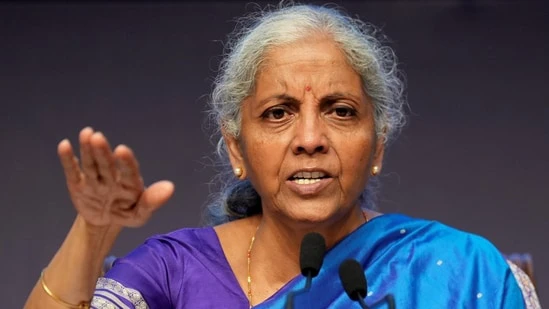The two-tier Goods and Services Tax (GST) structure (plus a “sin goods” slab) announced on Wednesday has not been influenced by the tariffs imposed by the US on India, finance minister Nirmala Sitharam has said.
She said the Centre had been working on these for one-and-a-half years. The US has imposed 50 per cent tariffs on India, including 25 per cent additional duties “for purchase of Russian oil” as per US President Donald Trump.
What PM Modi said
Welcoming the introduction of the new GST structure and rate rejig, which will come into effect from September 22, PM Narendra Modi said that these were aimed at “ease of living” for the common man.
“The Union Government had prepared a detailed proposal for broad-based GST rate rationalisation and process reforms, aimed at ease of living for the common man and strengthening the economy,” the Prime Minister said.
PM Modi further said that the GST council, including the Union Government and states, had collectively agreed to the proposal on GST rate cuts and reforms, adding that these would benefit “common man, farmers, MSMEs, middle-class, women and youth.”
MSMEs stand to gain, says FM Sitharaman
Finance Minister Nirmala Sitharaman said that Micro, Small and Medium Enterprises (MSMEs) stand to gain from the new GST reforms.
“We have brought about structural reforms,” Sitharaman said, adding that compliance would not take time, and that the system and registration had been simplified.
Sitharaman said that the confusion in classification would not take place, and refunds would be given immediately after inversion correction. “Where there is no inversion, money will not be locked,” Sitharaman said.
The Finance Minister said that the raw material and intermediary products used by MSMEs had also been included in GST rate cuts, thus benefitting the enterprises.
Under the GST reforms announced, rates on common use items such as hair oil, soaps, bicycles, have been reduced to 5% from 12% or 18%. Sitharaman said that individual insurance policies, roti, paratha and life-saving drugs would not attract any GST.
Meanwhile, 40 per cent GST would be levied on demerit goods such as tobacco, pan masala, private planes and yachts, luxury cars, motorcycles above 350 cc and carbonated drinks, the Finance Minister said.
